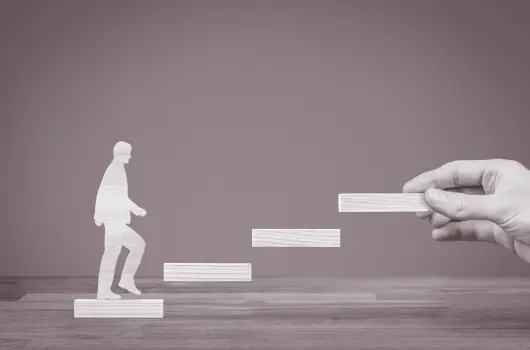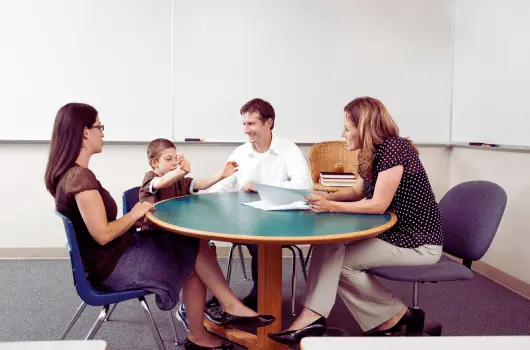
Essential Advice for New Teachers
Congratulations on making it through your studies and landing your first job as a teacher. Now, when you think about entering your first classroom the question you most probably have is: Where do I start?
You are likely also feeling a mix of emotions: excitement, nervousness, and determination. Or, something around that mix. Don’t worry, we have all been there in the beginning.
After more than a decade of teaching experience, I still remember my first day. And today I want to share with you my hard-earned wisdom and give you several practical advice to succeed.
Set the Foundation from Day One
The most important in the first days of school is to build the foundation from the start.
It is essential that you set clear expectations for the behavior, participation, and academic performance of your students from the beginning.
One of the things I like to do is to set the rules, procedures, and consequences. Then I make sure to explain these rules to my students and practice them until they become second nature.
The rules may include how to enter or exit the classroom, procedures to submit an assignment, or what to do if they finish work early.
As the practice shows, it is easier to set expectations early on than try to implement them later. People form habits quite fast, especially bad ones.
Therefore, it will be more work on your side to implement those rules later as you will need to correct the existing habits.
Also, when you set clear boundaries from the beginning, you create a structured environment for productive learning.
Build Relationships

Boundaries are crucial in two ways. First, they structure your and your students’ modus operandi. Second, they will help you to build relationships with your students.
Hence, it is easier to cultivate and maintain positive relationships when everyone knows the ground rules.
The connections you will build with your students will be one of the most rewarding aspects of teaching. Therefore, it is a good idea to not hurry up.
Take your time and get to know your students as individuals. Make sure you know their interests, strengths, challenges, and dreams.
You can always make getting to know each other a fun game. One of my favorite ones is “Two Truths and a Lie”. It works as a great ice breaker too.
Additionally, you can share appropriate personal anecdotes or stories, it may help humanize you in the eyes of your students.
The age does not really matter. Since your students are all human beings, we like to feel seen, heard, and valued. And in this way, we are more likely to engage in learning.
Plus, good relationships will be that fuel that will keep you going through tough days.
Be Prepared and Flexible
As a teacher, planning to some extent will always be your lifeline. Therefore, aim to stay at least a week ahead of your lesson plans. Make sure you outline what you will teach.
Also, plan how you will teach it, maybe some specific methods or strategies. What materials do you need and how you will assess understanding.
However, as no two lessons are the same, no lesson ever goes exactly as you plan. That is why it is so important that you stay flexible and are ready to adapt on the go.
Sometimes, your students can struggle with a concept and take more time than you planned. Also, a discussion can take an unexpected and valuable turn. You will need to read the room and adjust.
Good planning is never about being strict and following everything. It means to be prepared enough, that you can navigate changes and adapt to changes as they arise.
Master Classroom Management

It is not a secret that classroom management is one of the biggest challenges. Especially it is difficult for new teachers. But it is not impossible to master.
Here I prepared some tips for you for the beginning:
• Use nonverbal cues. Non-verbal communication takes 55% of all the communication. Another 38% take your voice and the tone you speak. And yes, only 7% take the words you say.
Therefore, a look or a hand signal can often redirect behavior without interrupting your lesson.
• Catch students being good and acknowledge it. Positive reinforcement always builds better habits and behaviors.
• Be consistent and follow through with consequences all the time. Otherwise, your students will not follow them and will constantly disrupt your flow.
• Use “I” statements instead of “you”. “I need everyone to focus” sounds more effective than “You guys are too loud”.
• Avoid too much authoritative power. Give choices within the limits rather than set ultimatums.
And remember, that good classroom management is not reactive, it is proactive. Meaning, that disruptions will be less likely to happen in the first place.
As we discussed, you will create it by setting clear expectations, establishing routines, and reinforcing them regularly.
Differentiate Instructions
Every classroom you will ever teach will have students will a wide range of abilities, learning styles, and needs.
That is why, you will need to differentiate your instructions. This is crucial to make sure your students can engage and learn effectively.
Differentiated instructions may also involve giving choices in how your students demonstrate learning.
Also, provide scaffolding or extra support for the students who struggle. Or offer extra activities for advanced learners.
Besides, use a variety of instructional methods. We all learn differently. Some of us are better at visual learning, some at auditory, and some at kinesthetics.
Make sure you meet the diverse needs of your students. As well as that you provide everyone with equal opportunities to succeed.
Avoid Burnout

Teaching is a very demanding profession. Not only physically you will feel tired after the full day of work. Also emotionally, teaching is very challenging and draining.
Therefore, make sure you do not work around the clock and take a lot of extra activities. As it is a sure way to burn out.
Some of the advice I can give you may sound banal, but they are very effective:
• Set boundaries on your working hours and do not overstep them.
• Find time for exercise and a healthy diet.
• Make sure you have your hobbies and activities outside of school.
• Connect with friends and family. Work is great but you should work to live not vice versa.
• Practice mindfulness or meditation.
Remember, you can’t pour coffee from an empty cup. So make sure you care of yourself. When you are well-rested and balanced, you have more energy and patience. And it is necessary to be the best teacher you can be.
You're Not Alone

Teaching may sometimes feel isolating. But you should not go through it alone. You can always seek support from your colleagues, or mentor teacher.
Also instructional coaches or curriculum specialists can also be of great help.
And one of my favorite sources of motivation and support are online teaching communities and forums. As there you can reach more colleagues with different experiences and tips.
Do not be afraid to ask for help or advice. You are not supposed to know everything.
Most experienced teachers are more than happy to share their experience and resources. They can also provide emotional support, fresh ideas, and opportunities for your professional growth.
Leverage Technology
Maybe it is my own personality, but technology has always fascinated me. I see it as a very powerful tool to use in a classroom.
It promotes engagement, provides instant feedback, and opens new horizons for creativity.
However, I do not advise using technology for technology’s sake. It is crucial to use it right. And you may ask: how can I know if it is right?
The answer is simple. Before using a tool or app always ask yourself the following:
• How does this tool improve learning?
• Do all of my students have access to it?
• How much time will it take to implement it and make sure everyone knows how to use it?
Remember, the purpose of technology is to support teaching, not replace it. And the most effective use of it is when you integrate it seamlessly to help you meet learning objectives.
Progress Over Perfection

So many new teachers fall into the trap of comparing themselves to more experienced teachers. They strive for perfection in every lesson and try to excel at everything they touch. Sure way for burnout and low self-esteem.
The truth is, teaching takes years to master and even then, you will always find room for growth.
Instead of striving to approach perfection, focus on continuous improvement. And compare yourself today only with yourself of yesterday.
After each lesson or unit, reflect on what went well and what could you do better. Keep track of it and your ideas for improvement. Try them and see what works, and what doesn’t.
And remember, it's okay to make mistakes. The most important is to learn from them and not repeat them.
Cultivate a Growth Mindset
A growth mindset is the belief that you can develop any skill through dedication and hard work. And it is crucial to develop both you as a teacher and your students.
You can encourage this mindset by doing the following:
• Praising for effort and strategy, not only results.
• Approaching mistakes as learning opportunities.
• Encouraging students to set and work towards challenging goals
• And modeling your own learning and growth.
Remember, every expert was once a beginner. And no one is born as a great teacher. But everyone can become one.
Therefore it is important to embrace the learning process and motivate your students to do the same.
Effective Parent Communication

Parents are your allies in education. Building positive relationships with them is very important. And it can also greatly impact student success.
Try to start the year with positive contact. You can send a welcome email or give a phone call. Also, try to communicate with them regularly, not just when problems arise.
Listen to parents’ concerns and their perspectives. And offer specific and actionable suggestions for how parents can support their child’s learning.
Make Meaningful Assessments
Many teachers think of an assessment as assigning grades. But it is not only that, it is mostly about gathering information. And you can use this information to guide your teaching instructions.
For example, if many students struggle with a concept, you may want to re-teach it or try a different approach. Remember, the goal of assessment is to support the learning, not to measure it.
Stay Organized

In teaching, staying organized is crucial. There are so many things and admin work that can quickly pile up and get lost.
Hence, you may want to find tools that work for you. Whether it is a digital planner or a bullet journal, the more organized you are, the more time and energy you will have for teaching.
From my own experience, try to develop systems for:
• Lesson planning and lesson materials.
• Grading and record-keeping.
• Communication with parents and colleagues.
• And managing paperwork and admin tasks.
Stay Current in Education
Education is one of the fields that constantly develops. Just look at the past several years, how drastically it has changed. Therefore, stay current with best practices and new research.
You can attend workshops, read educational blogs and journals, participate in online courses or webinars, etc.
Just do not be afraid to try new strategies or techniques in your classroom. In this way, you will learn what works for you and what is now and gain valuable experience.
Finally, in between lesson plans, gradings, meetings, and other demands, do not forget why you chose this profession. You are making a difference in young lives, so keep holding on to this passion. It is challenging but it is also very rewarding.
As a new teacher, ahead of you, there is a journey filled with so many opportunities for growth and impact. Take it slow and don’t take care of yourself. And remember, that every experienced teacher was once in your shoes.

Written by Liudmyla M.
Experienced Tutor with over 12 years of teaching both online and offline. Passionate about helping students achieve their goals through personalized and practical methods.

